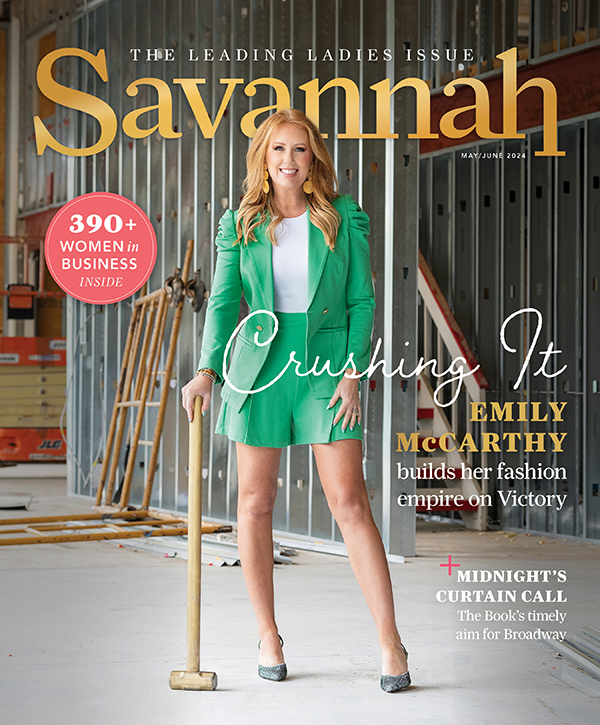Are blue-light-blocking glasses a sight for sore eyes?

“DON’T SIT SO close to the TV or you’ll go blind,” warned my mother, and probably yours, too. Fortunately, the TV didn’t compromise my vision, but we had all of one screen in our house. Today, each person in the United States has an average of eight screens in the form of digital devices that connect to the internet — a number that’s expected to climb to about 13 per person by 2022, according to forecasting by tech giant Cisco.
Will all these screens, with their artificial light, eventually burn through our retinas?
The growing popularity of blue-light-blocking lenses is certainly fed by that fear. In 2019, the global market for this specialized eyewear was an $18 million industry, and it’s expected to increase to $27 million by 2024, no doubt fueled by alarmist headlines claiming that blue light causes eye strain, sleep disruption and eye disease.
“There’s a big market out there for blue-light-blocking lenses,” acknowledges Dr. William Pearce of Georgia Eye Institute. “But there’s really not a lot of evidence to show that they are protective.”
Blue light is on the higher energy spectrum of visible light. Its primary source is the sun, which is a good thing for creating natural sleep and wake rhythms, but overexposure to blue light’s short yet powerful wavelength can damage our vision. However, Pearce points out that the luminescence levels — the measure of the intensity of light — emitted from digital devices are so much lower than what’s generated by the sun, and the level of artificial blue-light exposure just isn’t enough to cause problems.
Some studies in mice have indicated that blue light is harmful, but Pearce explains that these weren’t conducted using realistic scenarios. “The exposure levels to the mice were high in an unnatural manner,” says Pearce. “The reality is, there’s no way to clinically study this because we can’t control blue light exposure in a series of humans long enough to know if there’s an effect or not.”
“My opinion as a retina specialist is that the blue light emitted from our phones is not causing damage to the health of our retina,” Pearce emphasizes. “But blue-light-blocking lenses aren’t going to hurt you, either. It’s sort of like taking a multivitamin. It might help.”
The real damage caused by the blue light frenzy might be that it distracts us from other issues proven to cause damage. “In my practice, cardiovascular risk factors are bigger contributors to macular degeneration,” Pearce says, “and diabetes is one of the leading causes of vision loss in the U.S.”
While people who sit in front of computers all day might complain of dry eyes, blurred vision or headaches, the discomfort likely has more to do with the digital device than the light it emits. “Most eye strain associated with the use of computers, tablets and phones is actually secondary to the effort that it takes for your eyes to focus up close,” says Dr. Richard Schulze, Jr. of Schulze Eye & Surgery Center, who is “not at all convinced” that blue-light-blocking eyewear reduces eye strain.
“We just aren’t meant to stare at a screen a foot or two from our eyes,” adds Pearce. He notes that some studies show how using digital devices cuts a patient’s normal blink rate in half, which can make eyes dry out quicker and feel irritated.
While Dr. Edward Sammons of SouthCoast Health agrees that there isn’t enough evidence to show that blue light emitted from screens is harmful, he remains cautious. “We’ve been on digital devices for a while, but we just don’t know the full long-term effects,” he says. “It’s certainly not going to hurt us to have blue-light-blocking lenses.”
Where the doctors all agree, is that blue-light-blocking eyewear can improve sleep. “Some blue light is good because it increases our cognitive awareness and makes us wake up,” Sammons says. “The reason it can affect our sleep is that it confuses our brain into thinking that it’s daylight.” For iPhone users, Schulze recommends using a setting called “Night Shift,” which changes the color spectrum on the screen prior to bedtime to reduce blue light and promote better sleep. Or, go ahead and invest in those blue-light-blocking lenses.
The unfashionable yet functional Uvex blue blockers (think bright yellow wraparound shades) run less than $30, but thankfully more stylish options are available from online shops like Pixel Eyewear if you’re willing to spend a little extra. In fact, today’s blue-light-blocking glasses can be impossible to distinguish thanks to a colorless film applied to the lens.
Anecdotally, many wearers of blue blockers praise how the lenses make their peepers feel. Maybe it’s just a placebo effect, but being overprotective never really hurt anyone. It worked for Mom, anyway.


